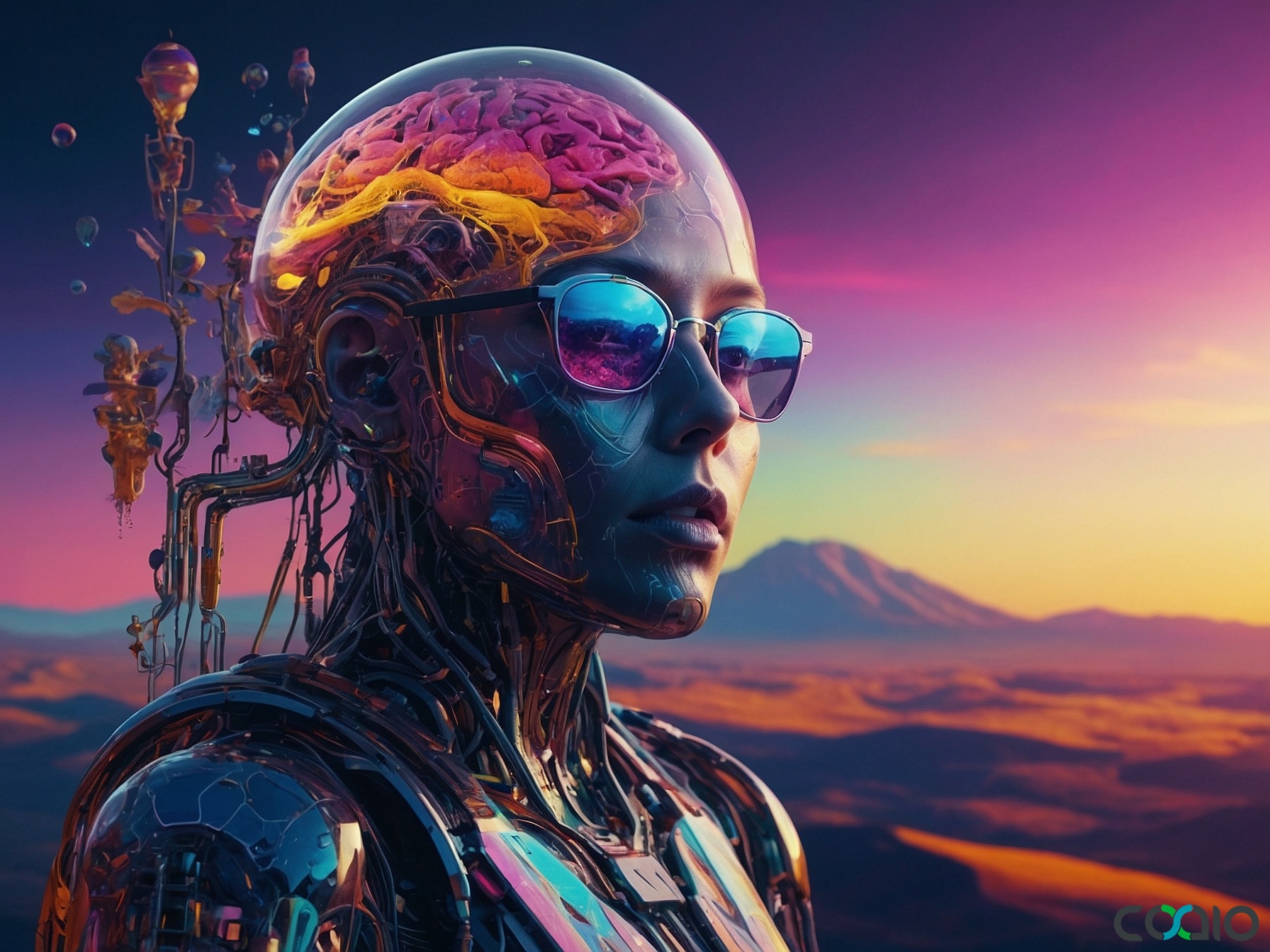
Revolutionizing Software Development: AI Innovations, Legal Battles, and ROI Strategies in 2025
In the fast-paced world of technology, software development continues to evolve with groundbreaking tools, corporate strategies, and emerging challenges. As of October 24, 2025, the latest news highlights a mix of advancements in AI integration, production shifts in the automotive sector, high-stakes acquisitions, legal disputes over data, and warnings about AI training pitfalls. These developments underscore the dynamic nature of the industry, where efficiency, innovation, and ethical considerations are more intertwined than ever. This article dives deep into these stories, exploring their implications for developers, businesses, and the broader tech ecosystem.
The Rise of AI in Measuring Developer Productivity
One of the most exciting announcements in recent software development news comes from GitKraken, a leader in enhancing developer workflows. On October 22, 2025, GitKraken launched GitKraken Insights, a tool designed to help companies quantify the return on investment (ROI) of AI in their engineering teams. As AI adoption surges, many organizations struggle to demonstrate tangible benefits, such as faster code deployment or reduced debugging time. GitKraken Insights addresses this by providing analytics on how AI tools impact productivity metrics, like commit frequencies and error rates.
This release is particularly timely, as engineering teams worldwide grapple with integrating AI assistants into their daily routines. For instance, the tool could analyze data from version control systems to show correlations between AI usage and project timelines, helping managers make data-driven decisions. According to the announcement on SD Times, “while many engineering teams have adopted AI at this point, it is still a challenge to prove AI’s ROI.” Read more about GitKraken Insights here.
This innovation highlights a broader trend in software development: the shift toward measurable outcomes. Companies are increasingly seeking ways to optimize their development processes, especially in an era where AI can automate routine tasks. By leveraging such tools, businesses can streamline operations and focus on high-value creative work, potentially reducing costs and accelerating time-to-market for new products.
OpenAI’s Bold Move into Operating System Integration
Shifting gears, OpenAI’s recent acquisition signals a significant step toward deeper AI integration into everyday computing environments. On October 23, 2025, OpenAI acquired a firm that was developing tools to control macOS directly with AI, as reported by Ars Technica. This move suggests OpenAI’s ambition to embed its technology into operating systems, making AI interactions as seamless as typing a command or swiping a screen.
The acquired company’s work focused on AI-driven automation, similar to Apple’s Shortcuts app, but with enhanced capabilities for natural language processing. This could revolutionize software development by allowing developers to build applications that interact more intuitively with users’ devices. Imagine writing code that not only runs applications but also anticipates user needs, such as automatically organizing files or suggesting optimizations based on real-time data.
For software developers, this acquisition could mean new opportunities in creating AI-enhanced apps. It also raises questions about compatibility and security, as deeper OS integration might expose vulnerabilities. As Ars Technica noted, “The acquired firm was working on a tool to control macOS directly with AI.” Dive deeper into the acquisition details. This development could accelerate the adoption of AI in software workflows, making it easier for teams to prototype and deploy intelligent features.
Legal Challenges in Data Scraping and AI Training
The software development landscape isn’t without its controversies, as evidenced by a lawsuit involving Reddit and Perplexity. On October 23, 2025, Reddit accused Perplexity of scraping its content from Google search results, sparking a legal battle over data usage rights. Ars Technica reported that Perplexity was “caught red-handed” stealing Reddit’s data, which the company used to train or enhance its AI models.
This case underscores the growing tensions around data ethics in AI development. As large language models (LLMs) rely heavily on vast datasets, questions about ownership and fair use have become paramount. Reddit’s lawsuit aims to block such practices, potentially setting precedents for how companies handle web scraping. For developers, this means navigating a minefield of legal considerations when sourcing training data for AI projects.
In a related story, researchers have warned about the dangers of “junk data” in AI training. A study published on October 23, 2025, by Ars Technica revealed that LLMs trained on superficial or low-quality data, such as short and popular tweets, suffer from “brain rot.” This term describes a decline in model performance on benchmarks, leading to less accurate outputs and reduced reliability. The researchers emphasized that high-quality, diverse datasets are crucial for building robust AI systems. Explore the full research on LLM training.
These legal and research developments highlight the need for ethical practices in software development. Developers must prioritize data integrity to avoid costly errors and lawsuits, ensuring that their innovations are both effective and defensible.
The Intersection of Automotive Tech and Software Development
While not exclusively a software story, Ford’s decision to pause production of its F-150 Lightning electric trucks offers insights into how software-driven technologies influence broader industries. Announced on October 23, 2025, via TechCrunch, Ford is shifting focus to gas and hybrid models amid market demands and supply chain challenges. This move reflects the complexities of integrating software-heavy electric vehicle (EV) systems, which rely on advanced firmware for battery management, autonomous features, and user interfaces.
For software developers in the automotive sector, this highlights the importance of adaptable tech stacks. EVs like the F-150 Lightning depend on sophisticated software for performance optimization, but economic pressures can force pivots. Ford’s strategy underscores the need for flexible development practices, such as modular coding that allows quick switches between EV and hybrid platforms. As TechCrunch reported, “Ford is prioritizing its gas and hybrid F-150 trucks instead.” Read the full story on Ford’s production shift.
This example illustrates how software development extends beyond apps and websites, influencing hardware ecosystems. Developers working on IoT and embedded systems must consider real-world factors like market volatility, making tools like GitKraken Insights even more valuable for tracking ROI in these areas.
Implications for the Future of Software Development
Looking ahead, these news items paint a picture of an industry at a crossroads. AI is becoming a cornerstone of innovation, but it brings challenges in measurement, ethics, and integration. From GitKraken’s productivity tools to OpenAI’s OS ambitions, developers have powerful resources at their disposal. However, legal battles and research on data quality remind us that sustainable progress requires careful planning.
In this context, the relevance of specialized services becomes evident. For instance, when businesses seek to implement AI-driven tools like GitKraken Insights, they benefit from expert guidance in development and project management. This ensures that new technologies are adopted efficiently, minimizing risks and maximizing returns.
As we wrap up this exploration, let’s consider a creative twist on building a better tech future. Imagine a world where innovative ideas flourish without the burden of complex setups—much like how a well-oiled machine turns raw materials into something extraordinary. This vision echoes the ethos of forward-thinking entities that help turn concepts into reality with minimal fuss, allowing creators to focus on what truly matters: their groundbreaking ideas and the impact they create.
About Coaio
Coaio is a Hong Kong-based tech firm that specializes in outsourcing software development and building expert teams in Vietnam. Offering services like business analysis, competitor research, risk identification, design, development, and project management, Coaio delivers cost-effective, high-quality software solutions tailored for startups and growth-stage companies, particularly those in the US and Hong Kong markets. By partnering with Coaio, you can streamline your tech projects, reduce risks, and focus on your core vision, making it easier to navigate the complexities of modern software development.
 English
English
 Français
Français
 Español
Español
 廣東話
廣東話
 中文
中文
 日本語
日本語
 한국어
한국어
 العربية
العربية
 Deutsch
Deutsch

